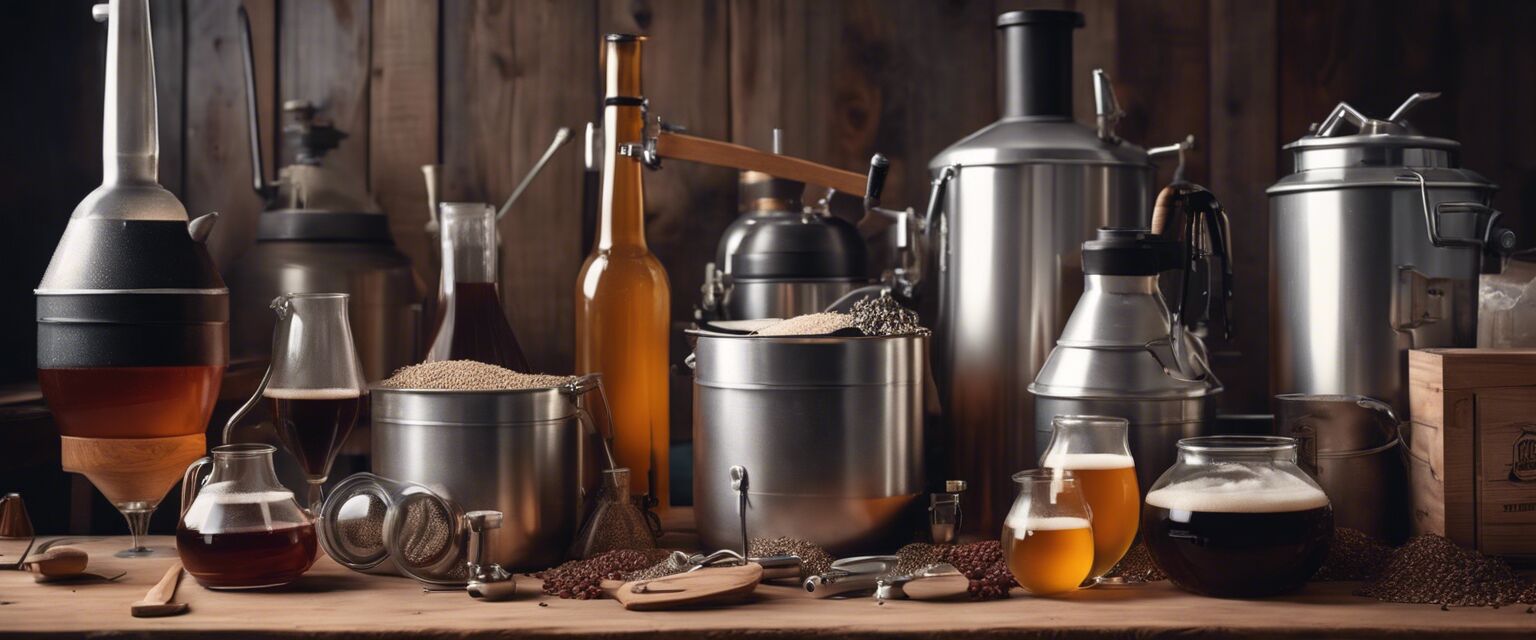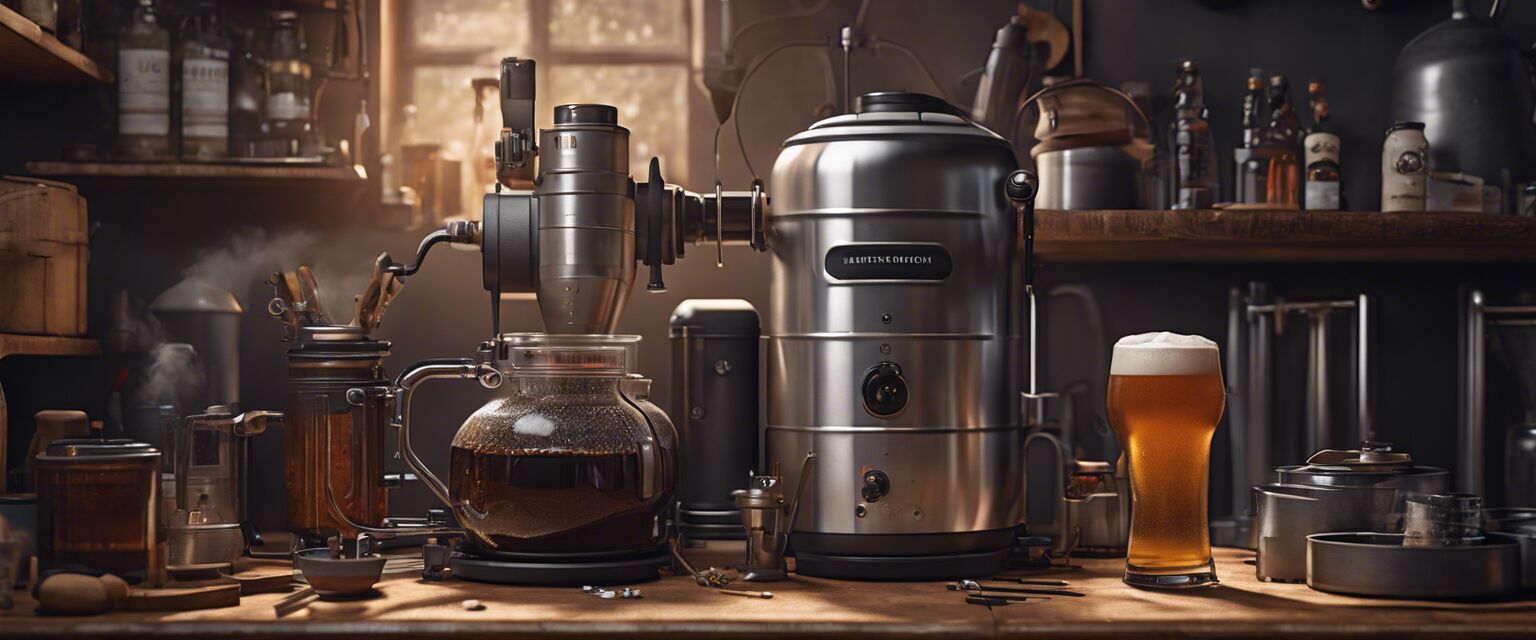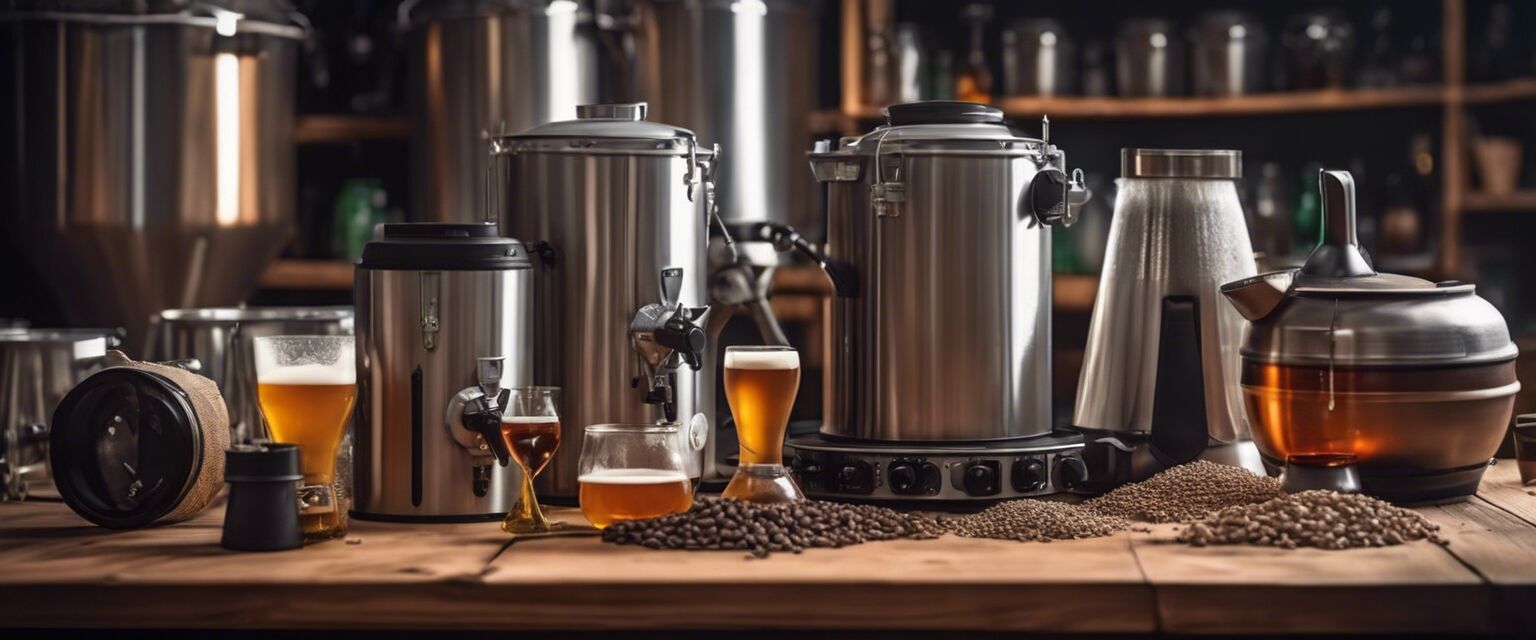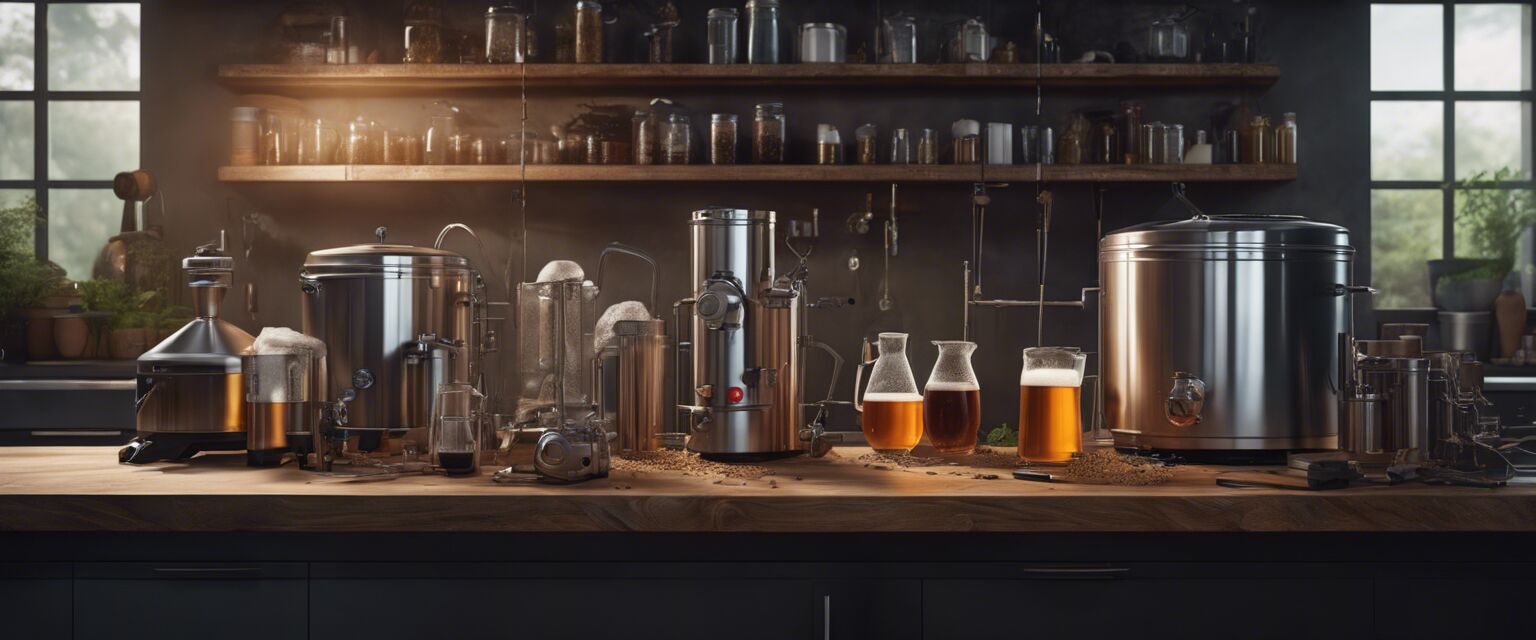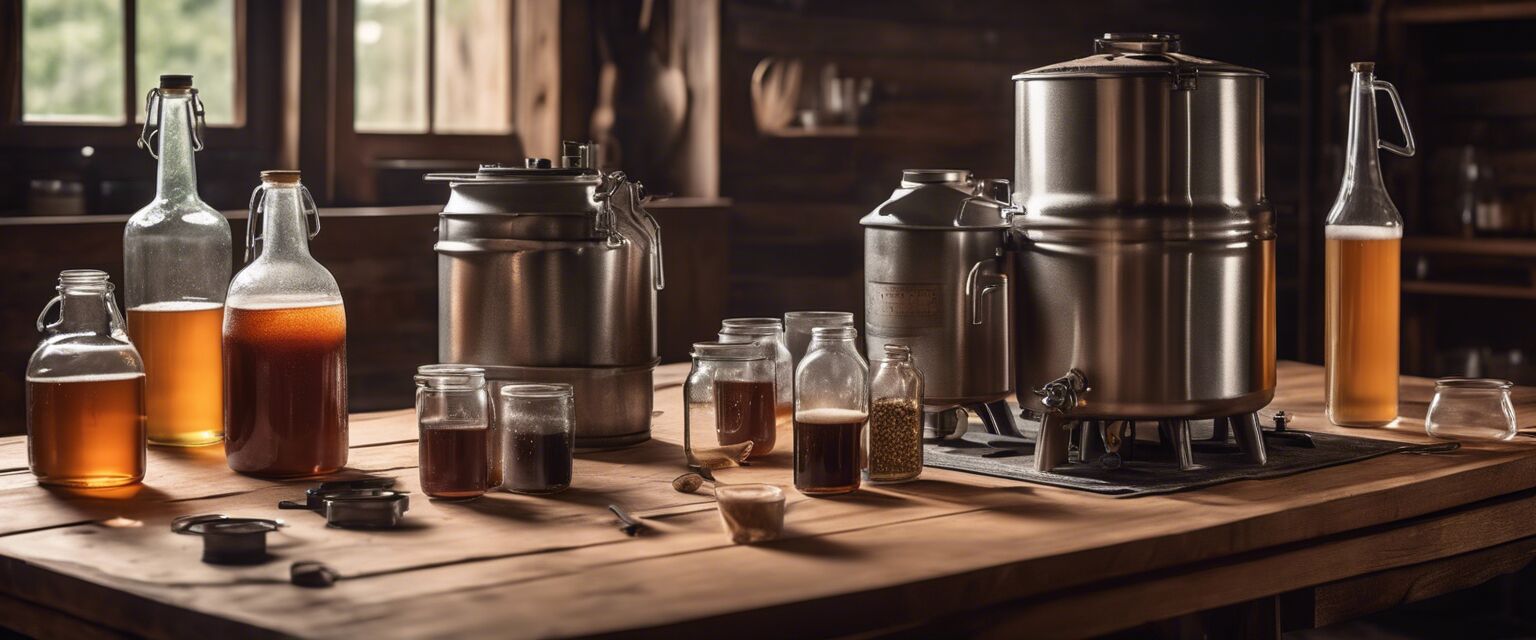
Cleaning and maintenance of brewing kits
Keeping your home brewing kit clean and well-maintained is essential for producing high-quality beer. Proper cleaning and maintenance practices not only enhance flavor but also prolong the life of your equipment. This article covers the best practices for cleaning and maintaining your brewing kit, ensuring your beer remains top-notch.
Key Takeaways
- Always clean your brewing equipment after each use.
- Use non-toxic cleaning solutions for safe brewing.
- Regular maintenance can enhance the longevity of your kit.
- Learn the best practices for sterilization to avoid contamination.
Why cleaning is important
Cleaning your brewing kit is crucial to avoid contamination and unwanted flavors in your final product. Any leftover residue can harbor bacteria or wild yeast that may spoil your batch. A clean brewing environment allows your desired yeast to flourish, producing consistent and delicious brew.
Cleaning your brewing equipment
To maintain your brewing kit, follow these cleaning steps:
Step-by-step cleaning process
- Gather your supplies: You'll need hot water, a clean sponge, a non-toxic cleaning solution like Star San, and brushes for narrow openings.
- Disassemble your equipment: Take apart all components of your brewing kit such as fermenters, tubing, and siphon.
- Rinse with hot water: Rinse all items with hot water to remove any remaining liquids.
- Apply cleaning solution: Apply your cleaning solution, scrub using a clean sponge, and use brushes for hard-to-reach spots.
- Rinse thoroughly: Make sure to remove all cleaning solution residues thoroughly.
- Air dry: Allow all equipment to air dry completely before storing.
Table of recommended cleaning solutions
| Cleaning Solution | Type | Notes |
|---|---|---|
| Star San | Sanitizer | No rinse required; very effective against bacteria. |
| PBW (Powdered Beer Wash) | Detergent | Effective for soaking; remove stubborn residues. |
| Vinegar | Natural cleaner | Good for light cleaning; not a sanitizer. |
| Simple Green | Multi-purpose | Non-toxic; safe option for cleaning bottles and equipment. |
Maintenance tips for brewing kits
Beginnerâs Maintenance Guide
- Inspect your equipment regularly for any cracks or damage.
- Replace any worn seals or gaskets in your fermenters and kegs.
- Store your brewing kit in a cool, dry place to avoid corrosion.
- Avoid prolonging storage of unfinished mixes; clean promptly.
- Keep hoses and fittings lubricated to ensure easy disassembly.
Best practices for sterilization
In addition to cleaning, sterilization is key to preventing contamination. Here are the best practices:
- Use a high-quality sanitizer: Make sure you use effective sanitizers, like Star San or Iodophor.
- Follow the recommended concentration: Always dilute sanitizers according to manufacturer instructions.
- Time your sterilization: Allow your equipment to soak in the sanitizer solution for the recommended time.
Common mistakes to avoid
- Not cleaning immediately after use, which can cause buildup.
- Using bleach for cleaning, which can leave residues that affect flavor.
- Skipping the rinse after cleaning solutions, leading to contamination.
- Ignoring equipment inspections for wear and damage.
Conclusion
Maintaining a clean brewing kit is essential for any home brewer. By following best cleaning and maintenance practices, you will ensure your home brewer's experience is both enjoyable and productive. Make use of the right cleaning supplies, keep a regular maintenance schedule, and remember to sanitize your equipment thoroughly. Happy brewing!
Pros
- Improved flavor of the beer.
- Increased longevity of brewing equipment.
- Reduced risk of contamination.
- More enjoyable brewing process.
Cons
- Requires time and effort to clean properly.
- Purchase of specific cleaning solutions may incur extra costs.
- Some equipment may be challenging to clean.
Additional resources
For more information on specific brewing kits, check out our sections on Starter Brewing Kits, Advanced Brewing Systems, and our comprehensive range of Home Brewing Accessories. Understanding the variety of equipment can further enhance your brewing experience!
FAQs about cleaning and maintaining brewing kits
How often should I clean my brewing equipment?
You should clean your brewing equipment after every use to avoid any residue buildup that could lead to contamination.
What is the best way to sterilize my brewing kit?
Using a no-rinse sanitizer like Star San is one of the best methods for sterilizing your brewing kit. Just be sure to allow all equipment to soak in the solution for the recommended time.
Can I use bleach to clean my brewing kit?
It's not recommended to use bleach because it can leave residues that alter the flavor of your beer. Instead, opt for specialized brewing cleaners.
Where should I store my brewing kit?
Store your brewing kit in a cool, dry place to prevent rust and corrosion.
What should I do if I notice contamination in my beer?
If you suspect contamination, discard the batch and review your cleaning and sterilization practices to pinpoint any issues.





